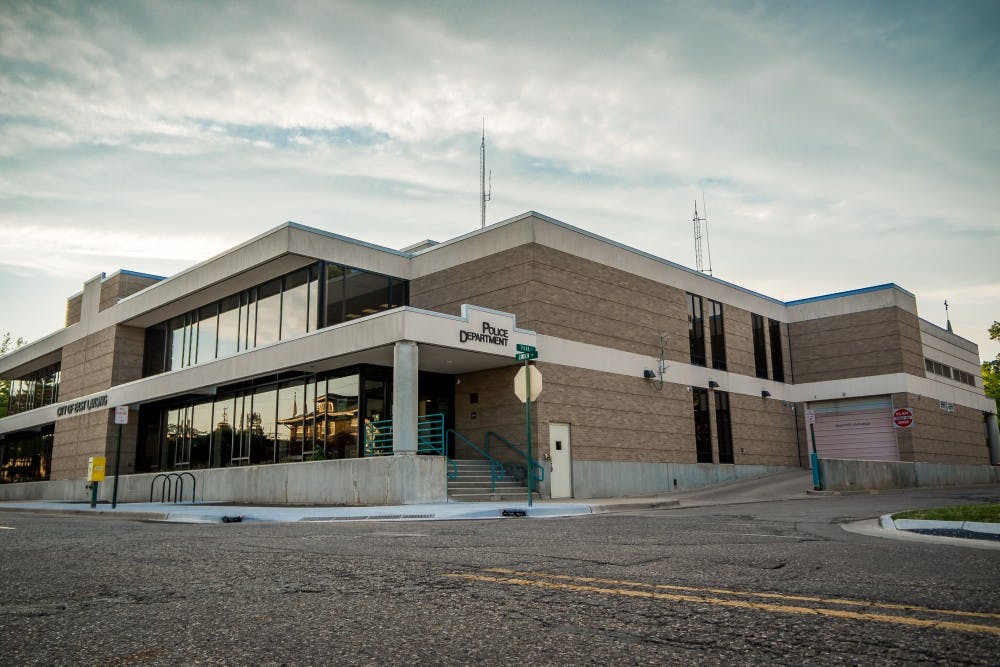On July 13, 2021, nearly 15 months after the Study Committee on an Independent Police Oversight Commission’s first meeting, the East Lansing City Council unanimously adopted the Study Committee’s recommendation to establish an 11-member Independent Police Oversight Commission with Ordinance 1503.
The purpose of the oversight commission is to increase the East Lansing Police Department’s accountability and the community’s trust in the department, according to the commission’s website.
Further, the commission’s priority is to address racial inequities in the East Lansing community and the department’s use of force.
East Lansing Mayor Ron Bacon said to establish the oversight commission, the Study Committee was involved in a thorough analysis of what a community-based and independent oversight commission would look like, including how many commissioners would serve on the oversight commission and how a police-complaint process would function.
As a result, the oversight commission is wholly independent, Bacon said.
“I want them (the oversight commission) to arrive at their own solutions independently, that way the community feels they have the autonomy necessary to work with the police without the council or the city being heavy-handed with directing their research or their input,” he said. “We’re pretty hands off.”
The commission’s oversight is confined to city limits. Chair of the Oversight Commission Erick Williams said the oversight commission does not make recommendations for Michigan State University’s Police and Public Safety and it is unlikely that the City of East Lansing and MSU will merge operations in that regard.
However, MSU students should anticipate the oversight commission to reach out to the university community with events like coffee conversations, Bacon said.
Williams, who also served on the Study Committee, said the biggest challenge in creating the oversight commission ground-up, was realizing the department is not the whole loaf of bread.
The police are a large profession,” Williams said. “It's organized nationally, and the operations of any city’s police department are governed in large part by national organizations and standards and so, it's difficult for a city’s commission to hold a local police department accountable because a police department is really bigger than the local police department. The work of the police is controlled by state and national organizations.”
Further, despite police officers having licenses, state and national organizations’ standards for officers are not regulated in the same manner as other professions, such as nurses and accountants, Williams said.
In Michigan, an officer’s certification may only be revoked if the officer is convicted of a crime, either a felony or multiple misdemeanors. As a result, police misconduct cases are overseen by local administrators like police chiefs and sheriffs.
The Michigan Commission on Law Enforcement Standards, therefore, does not have oversight over police misconduct cases and is, instead, responsible for preparing and publishing training standards for entry-level law enforcement officers and in-service training received by officers.
“We don’t have any power,” Williams said. “The city is run by the City Council. The police department is run by its management and the department’s union under a collective bargaining agreement, which is under a union contract. All the Oversight Commission can do is make recommendations. We can't decide whether somebody should be punished or disciplined for any kind of misbehavior. We can't force the police department to make any policy changes. All we can do is make recommendations and that is frustrating.”
Since the oversight commission’s first meeting more than six months ago, on Nov. 8, 2021, the commission has succeeded in working with the department to create detailed ‘Use of Force’ reports, which has drawn the East Lansing community closer to the department.
“We’ve worked with the police department to make them more detailed and dynamic,” Williams said. “Looking through those use of force reports gives you kind of an idea of how police officers work on the street … We hope to amplify that by having future reports of encounters between police officers and mentally ill people, police officers and juveniles, police officers and homeless people so members of the community will be able to go through those reports and see how police officers actually do their work on the street.”
Because the commission can only make recommendations, the nature of the oversight commission is to be a collaborative force with the department’s management and the community it serves, Bacon said.
“I think parts are still being bought out and flushed out through the process … but it's collaborative for the most part, '' Bacon said. “(The department) brings their reporting and (the commission) helps the department to decipher that report and then disseminate it … they're working together.”
But, Williams noted, that there is a distinction between the management of the department and members of the department, represented by the police union. The Oversight Commission has not been able to establish a collaborative relationship with the police union, he said.
“The union and the city have a contract and the union prefers to operate through its contract,” Williams said. "It would be good, I think, to have rank and file officers, as represented by the union, sit with members of the oversight commission and talk with each other. Whether that is going to happen remains to be seen.”
Support student media!
Please consider donating to The State News and help fund the future of journalism.
Every time a citizen has an encounter with a police officer, there is a risk the citizen or officer could be hurt, meaning there is an issue of safety, Williams said. And, typically, unions, management and government regulatory agencies work together on these issues of safety, but that doesn’t seem to happen in the police profession.
“When a shooting happens every few days, every few weeks, the investigation process becomes very important, '' he said. “Local boards, like this one, do not have much control over how these incidents are investigated … there is no state board any citizen can go to, to bring a complaint against a police officer.”
However, Commissioner and public school teacher Ernest Connerly said the oversight commission functions in an oversight capacity, with the department doing a good job at being cooperative with the commission.
“To have effective oversight, you have to have a good working relationship with the police because they have to be able to take what the commission is saying and put it into force and feel … represented in the decisions being made," Connerly said. “You need a little bit of both.”
Whether the oversight commission has reached its full potential in its six-month infancy is yet to be seen, Bacon said.
"It’s way too soon to evaluate them at this point,” Bacon said. “In fairness, six months is too soon … I think we’ll wait and see on that.”
“This is the founding commission, so a lot of the work we have has been setting precedent for creating what the commission actually does,” Connerly said. “But we will get there, I suppose.”
Discussion
Share and discuss “ELPD's Oversight Commission works to address racial inequities in East Lansing” on social media.








